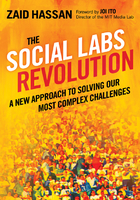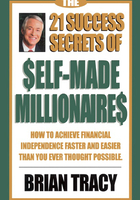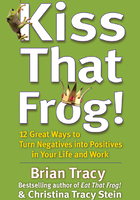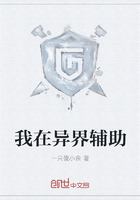As downsizing, restructuring, and delayering took hold in the late 1980s, old ladders became largely inaccessible. Some rungs disappeared, and the space between others shifted from steps to leaps. At the same time, individual aspirations and company needs were evolving. Terms like work–life balance were overheard in break rooms. Organizations began to examine how breadth of experience weighed against depth of expertise during talent reviews. The world of work was changing.
Careers today happen in that world—a world that continues to change. The environment is more global, more multigenerational, more dispersed, diverse, and complex than ever before. Hierarchies continue to flatten. Organizational structures are flexing. Even the value people place on work is changing.
Employees play multiple roles—from individual contributor to peer to leader and back, sometimes in the same day or within the same assignment. Roles emerge and evolve based on tasks and needs. Carefully written descriptions no longer define the boundaries of a job. Teams form and disperse based on projects. Feedback comes from multiple sources. The ladder, if it's still there, may be harder to see and tougher to climb.
Is This the End of the Career as We Know It?
Every industry is changing. As a result, internal workplace structures are changing as well. Up—the promotion path and perhaps even a ladder or two—may still exist, and could still be a goal—for some. However, as levels of the hierarchy have disappeared, promotional opportunities have become less available, so the route to a promotion may take new turns. Someone who wants to manage others can still get there and, with the right mix of experiences, will likely arrive better prepared to take on the role.
Flattened organizations and limited career ladders don't spell the end of growth or careers. Opportunities are there—different and varied, but very much still there, and even more plentiful. The next change frontier, then, is people's mind-sets, and that means changing the conversation, especially about careers.
Let's Be Honest
Up was never for everyone. It still isn't. Managing someone else is not on everyone's radar. Neither is taking on increasing levels of responsibility (really!). Not everyone wants to move up. That doesn't mean a rewarding career is out of reach.
The message has been out there for a while now that individuals own their careers. What does that really mean? We think it means that the definition of career success is up to each one of us. Every time circumstances shuffle the deck, you can deal yourself a new hand. That's good news actually that's great news! We are the only ones who can envision and imagine what success will look like. And, to add to that great news, as the creators of our career success pictures, we are free to alter them when and how we choose to! That is what it means to own a career.
But, if we own it and we can create it, how do we do it?
First it's about being mobile.
Career Mobility . . .
is essential for individuals at all levels. Each one of us needs to exercise agility and resilience that stable workplaces did not require. No longer is mobility just about physically moving to another building or town. It's more than getting promoted. It's sometimes just being willing to continue to learn and grow and stretch.
is about flexibility and agility. Like the navigation systems we rely on to reroute our travels based on traffic patterns, career mobility means flexing, adapting, and anticipating what's next.
involves a rich mix of experiences, roles, assignments, and options. Careers today require us to be open to exploring multiple opportunities and possibilities. Great careers will be the payoff for employees who watch for and recognize emerging growth opportunities and are ready with alternatives when options fade or change.
Second, it's about ownershift!
Ownershift: Who Does What?
We've all heard that employees own their careers. The organization needs to provide tools and resources, and managers need to support employees' career development. It's a partnership. Nothing new there!
What is new is talking less about the ownership and more about the ownershift—the need to fine-tune who owns what—and about what each player needs to do to demonstrate commitment to the partnership.
Individuals must define what success means to them personally. This means testing assumptions and exploring options. It means learning and applying the insights gained from exploration. It means building plans and following through on them. It requires being a little introspective and taking time to figure things out—like what skills they have or need, what interests them, and what they value most about their work. It means asking for feedback and listening, even when it's not all good news. And, most importantly, it means being willing to take responsibility for your future. Careers belong to individuals. A career evolves within a network of partners and support, but, bottom line, it's up to the owner to shape it and live it.
Managers, coaches, and mentors provide support through conversations; sharing stories; listening to individuals describe their interests, skills, and values; reacting to plans; offering feedback and connections. That support is vital to ownershift! When managers offer on-the-job learning, let's call it what it is—development. Stretch assignments are growing-in-place opportunities, not just “extra work.” When someone completes a stretch assignment, taking the time to debrief it will make learning stick. What did you learn? What skill did you acquire or sharpen? How will you apply what you learned? The support role includes preparing individuals to learn, helping them focus on what they learned, and then guiding them to apply the new skill or capability. It's a big role, sure. And it might mean shifting what you presently think it involves, but that's what we mean by ownershift. Each partner needs to understand the expectations and deliver on them.
Organizations have a role to play as well. The systems, processes, and tools the organization provides deliver on promises of a development culture. However, the organization's role doesn't end there. Through senior leadership, human resources, and related groups, the organization must ensure that employees have access to the tools—that employees know where to find them, what they offer, and how to use them. The organization must thread the message of development through existing communications vehicles and devise new ways to promote growth in all its shapes, sizes, and forms. Some employees tell us that their companies still celebrate only promotions—people who are moving up. Ownershift requires a change in that mind-set. This book can help accomplish that shift.
When the Shift Hits the Fan
We know that not everything happens as smoothly as we might like. Every organization has its own culture and unique environment. So what do you do if
ownershift is just words without action?
individuals are not ready?
the organization isn't fully on board?
some managers are just not good at this development thing?
Do you simply sit back and wait for the others to catch up? Certainly not! Whether development and growth are tracked and measured or left to chance, they are fundamental to building the future—for individuals and for organizations! Don't wait! Start now. You can start small, with a few conversations. When career conversations are happening, when individuals begin to talk about ideas and aspirations, when feedback is candid and insights emerge, everyone involved will know—you will know—you have completed your ownershift!
THINK ABOUT IT . . .
At the end of each chapter we will share some questions to use as conversation starters. The questions will help you explore and build deeper dialogue about careers—yours and others'! The questions and topics will challenge you to think more broadly, whether in preparation for a conversation with your peers, with your own manager or coach, or perhaps with the leaders of your organization.
For this first chapter, here are some things for you to ponder:
*What does career success mean to you?
*How do you feel about up not being the only way?
*Considering the information in this chapter, how mobility- minded are you? What gets in your way?
*How prepared are you for an “ownershift”?
*What does growth look like for you right now?
TALK ABOUT IT














